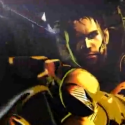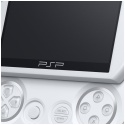‘Molecular Computers’ May Become Miniature ID Tags
King Of The Hill character Dale Gribble would probably have a thing or two to say about this one. Scientists at Queen’s University in Belfast, Northern Ireland have developed nanocomputers that can perform basic logic operations. These tiny computers use a technique called molecular computational identification (MCID), which can function as ID tags for nanoscale machinery.
This development grew out of research on molecules that work like silicon logic gates. The molecules use the presence of a chemical, or chemical compound as inputs, while giving off light as output, allowing the devices to communicate using binary and Boolean terms. Operators such as “YES,” “NOT”, “NOR” and “AND” would be indicated depending on whether these logic gates light up, according to the chemicals present. Molecular computation could eventually allow for billions of calculations to occur simultaneously in a test tube.
These molecular ID tags are similar to the “radio frequency identification” (RFID) tags found on silicon chips, which broadcast a unique ID when they receive input. The smallest are just 0.3 millimetres to a side. This is too large for the type of applications for Prasanna de Silva and his colleagues hope to use these microscopic marvels, which require that tags be attracted to individual cells.
Eventually, the ID process will be automated. Molecular combinations would simply be read off like “numbers from a license plate,” as de Silva says.
“What really makes the numbers go through the roof is combining operations,” de Silva says. Combinations of logical functions can create large numbers of unique tags by giving each one a different output. Bathing them in the various input chemicals that would display answers in the form of fluorescence.
These tags have tremendous implications medical research, allowing medical professionals to tag and identify individual cells. They promise to be useful for nanotechnologists in keeping track of large numbers of tiny nanostructures. No doubt, Big Brother and his corporate cronies have their own ideas for this as well…maybe Hank Hill’s paranoid friend isn’t so far off the mark.
Via New Scientist
King Of The Hill character Dale Gribble would probably have a thing or two to say about this one. Scientists at Queen’s University in Belfast, Northern Ireland have developed nanocomputers that can perform basic logic operations. These tiny computers use a technique called molecular computational identification (MCID), which can function as ID tags for nanoscale machinery.
This development grew out of research on molecules that work like silicon logic gates. The molecules use the presence of a chemical, or chemical compound as inputs, while giving off light as output, allowing the devices to communicate using binary and Boolean terms. Operators such as “YES,” “NOT”, “NOR” and “AND” would be indicated depending on whether these logic gates light up, according to the chemicals present. Molecular computation could eventually allow for billions of calculations to occur simultaneously in a test tube.
These molecular ID tags are similar to the “radio frequency identification” (RFID) tags found on silicon chips, which broadcast a unique ID when they receive input. The smallest are just 0.3 millimetres to a side. This is too large for the type of applications for Prasanna de Silva and his colleagues hope to use these microscopic marvels, which require that tags be attracted to individual cells.
Eventually, the ID process will be automated. Molecular combinations would simply be read off like “numbers from a license plate,” as de Silva says.
“What really makes the numbers go through the roof is combining operations,” de Silva says. Combinations of logical functions can create large numbers of unique tags by giving each one a different output. Bathing them in the various input chemicals that would display answers in the form of fluorescence.
These tags have tremendous implications medical research, allowing medical professionals to tag and identify individual cells. They promise to be useful for nanotechnologists in keeping track of large numbers of tiny nanostructures. No doubt, Big Brother and his corporate cronies have their own ideas for this as well…maybe Hank Hill’s paranoid friend isn’t so far off the mark.
Via New Scientist




